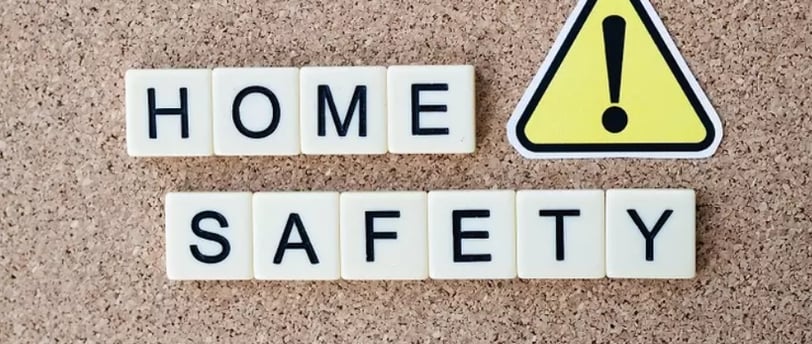Top Safety Tips for Gas Pipeline Users at Home
Ensuring the safe use of domestic gas pipelines is essential for protecting your home and loved ones from potential hazards such as gas leaks, fires, and health risks. Here are some crucial safety tips every homeowner should follow for a safe and efficient gas pipeline system.
NOVA GAS PIPELINE
1/27/20252 min read


1. Regular Inspection and Maintenance
Schedule annual professional inspections to check for leaks, corrosion, or faulty connections.
Regularly inspect visible gas lines for wear and tear.
Ensure appliances connected to the gas pipeline are serviced periodically.
Tip: Keep a maintenance checklist to track inspections and servicing dates.
2. Be Aware of Gas Leak Signs
Detecting gas leaks early can prevent accidents. Watch out for:
Smell: A strong odor similar to rotten eggs (added odorant in gas).
Sound: Hissing or whistling noises near gas appliances or pipelines.
Sight: Dead plants near pipelines, bubbling in wet areas, or unusual dust movement.
What to Do If You Suspect a Leak:
Immediately turn off the gas supply from the main valve.
Open windows and doors for ventilation.
Avoid using electrical switches, flames, or appliances.
Call emergency services or your gas provider for assistance.
3. Proper Ventilation is Key
Ensure your kitchen and areas with gas appliances have adequate ventilation to prevent gas buildup.
Never block air vents or exhaust outlets.
Install a chimney or exhaust fan to allow safe dispersal of fumes.
Tip: Avoid using airtight kitchen enclosures to ensure natural airflow.
4. Use Gas Appliances Safely
Always follow manufacturer instructions for gas stoves, water heaters, and other appliances.
Never leave cooking unattended.
Ensure burner flames are blue; yellow or orange flames indicate incomplete combustion and possible carbon monoxide buildup.
Tip: Turn off gas appliances after use to prevent accidental leaks.
5. Install Gas Safety Devices
Enhance safety by investing in modern gas detection and control systems, such as:
Gas Leak Detectors: Alerts you in case of leakage.
Automatic Shut-off Valves: Cuts gas supply during emergencies.
Flame Failure Devices: Shuts gas off if the flame goes out unexpectedly.
Tip: Consider smart home integration for remote monitoring of gas safety systems.
6. Safe Handling of Gas Valves
Always know the location of the main shut-off valve and how to operate it.
Never force open or close a gas valve; call a professional if it's stuck.
Keep the shut-off valve easily accessible in case of emergencies.
Tip: Conduct routine checks to ensure the valve functions smoothly.
7. Avoid DIY Repairs
Gas pipeline systems are complex and require professional handling.
Never attempt to repair, modify, or install gas pipes yourself.
Call certified gas service providers for any issues.
Ensure compliance with local safety codes and regulations.
Tip: Choose only authorized technicians for gas-related work.
8. Store Flammable Items Safely
Keep flammable materials like cooking oils, cleaning products, and paper away from gas appliances.
Avoid hanging fabrics near stoves or gas-powered heaters.
Store LPG cylinders, if any, in well-ventilated areas away from direct sunlight.
Tip: Maintain a clear area around the gas appliances to reduce fire risks.
9. Educate Family Members
Everyone in the household should know basic gas safety measures, including:
How to turn off the gas supply.
Recognizing early signs of leaks.
Emergency contact numbers for gas services.
Tip: Conduct periodic safety drills to ensure preparedness.
10. Follow Manufacturer Guidelines
Use only approved gas appliances that comply with safety standards.
Replace old or damaged appliances as per the manufacturer’s lifespan recommendations.
Never use non-compatible hoses, regulators, or fittings.
Tip: Check for certification labels when purchasing new gas appliances.
Contact Us Now


novagaspipeline@gmail.com
+91 9515016013
Gas Pipeline Installation Service By Nova Gas Pipeline
At Nova Gas Pipeline Service, we prioritize your safety and satisfaction. Choosing Nova Gas Pipeline Service means choosing a partner dedicated to improving your home's safety. Contact us today for our domestic Nova gas pipeline installation in Hyderabad.
Our Services
Gas Pipeline Installation In Hyderabad & Secunderabad, Gas Pipeline Installation In Pragathi Nagar, Gas Pipeline Installation In Bachupally, Gas Pipeline Installation In KPHB, Gas Pipeline Installation In Panjagutta, Gas Pipeline Installation In Ameerpet, Gas Pipeline Installation In Sai Nagar, Gas Pipeline Installation In Moosapet, Gas Pipeline Installation In Kukatpally, Gas Pipeline Installation In Nizampet, Gas Pipeline Installation In Miyapur, Gas Pipeline Installation In Lingampally, Gas Pipeline Installation In Patancheru, Gas Pipeline Installation In Secunderabad, Gas Pipeline Installation In Banjarahills, Gas Pipeline Installation In Jubilee Hills, Gas Pipeline Installation In Madhapur, Gas Pipeline Installation In Hitech City, Gas Pipeline Installation In Kondapur, Gas Pipeline Installation In Gachibowli, Gas Pipeline Installation In Nallagandla, Gas Pipeline Installation In Tellapur, Gas Pipeline Installation In Manikonda, Gas Pipeline Installation In Chintal, Gas Pipeline Installation In Jeedimetla, Gas Pipeline Installation In Alwal, Gas Pipeline Installation In Malkajgiri, Gas Pipeline Installation In Sainikpuri, Gas Pipeline Installation In Ecil, Gas Pipeline Installation In Tarnaka, Gas Pipeline Installation In Uppal, Gas Pipeline Installation In LB Nagar, Gas Pipeline Installation In Dilsukhnagar.
Our Locations In Hyderabad & Secunderabad
Copyright © 2025 NOVA Gas Pipeline Service. All Rights Reserved
